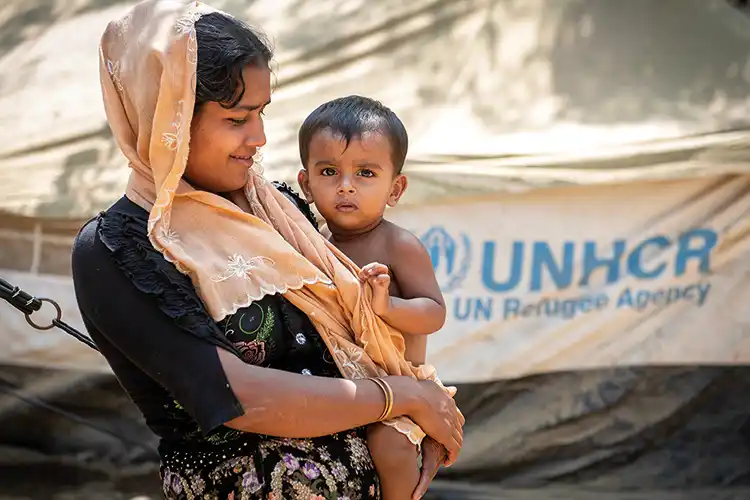


Tim Marshall argues that despite its many flaws, the United Nations does far more good than harm across the world
Another year, another UNGA. September saw the 79th United Nations General Assembly, at which the great and the seriously bad gathered to proclaim in stentorian tones this year’s bingo card of platitudes – ‘I stand before you… era of epic transformation… time for a just peace… future of humanity… global solutions.’ That was just the opening speech by Secretary General Antonio Guterres.
Then they went home, and nothing changed.
Enjoying this article? Check out our related reads:
UNGA, and the antics of the Security Council, make it easy to write the UN off as being, in the words of Ukraine’s President Zelensky, ‘A retired superhero’.
However, despite being in desperate need of reform, and at times a talking shop for grandstanding politicians, it has not retired, and still does heroic work.
The negative stuff is easy to find. The UN is numbingly bureaucratic, inefficient, expensive, plagued by corruption and bloated. Well- remunerated staff receive daily allowances that would make Keir Starmer blush, and despite churning out endless self-serving reports written in impenetrable jargon, they almost always get ‘above average’ in their annual reviews.
The Security Council is a dysfunctional product of the post-Second World War international order whose resolutions are either often vetoed by one of the permanent members or passed and ignored. Guterres admitted as much. Without naming countries or armed groups, he said: ‘They can trample international law… turn a blind eye to international human rights… invade another country… And nothing will happen.’
The agony of Sudan is an example. Guterres referred to the country in his speech, as did Joe Biden, Keir Starmer and others in theirs. But nothing happened. The UN has tried to broker a peace between the warring parties over the past 18 months with no success.
In August, the UN’s World Food Program was forced into investigating its own senior staff in Sudan. Reuters reported allegations of fraud and helping the army to block aid to certain areas in a country where half of the population is suffering crisis levels of hunger.

So, what’s the point of the UN? Despite the above – Sudan is the point. No other body can come close to the UN’s logistical capabilities through its own staff and their links with numerous NGOs. It pre-positions tents, blankets and food near areas that may experience conflict so that highly experienced staff can deliver them.
It isn’t the fault of the UN that those fighting refuse to stop, and use food as a weapon. Nor does the alleged corruption of a few individuals negate the humanitarian work that’s being done by those whose motives to do so are among the best of human traits.
Since its inception in 1945, the UN has saved tens of millions of lives. It has changed even more for the better with its health and education programmes, via agencies such as the World Health Organisation, UNICEF and UNHCR. There are currently more than 80,000 UN peacekeepers overseeing disarmament programmes, monitoring ceasefires and supporting elections.
More than two million men and women have served under the UN flag and more than 4,200 have been killed.
Other agencies’ work is less visible. The International Maritime Organization regulates the rules of the sea, the Organization for the Prevention of Chemical Weapons co-ordinates the destruction of Libya’s weapons of mass destruction, and the International Tribunal for the former Yugoslavia brought dozens of war criminals to justice.
Numerous global norms and obligations have been established. Some, such as those in the Outer Space Treaty, may be out of date but can act as a template for the agreements now required to keep pace with technology. The UN has groups trying to formulate agreed norms around the military use of AI, bioengineering and cyberspace.
The UN’s International Panel on Climate Change brings together the world’s expertise on one of the most pressing issues of the century and takes the lead in formulating policy.
So, another example of the point of the UN: climate change and the world coming together on an issue affecting every nation, every government, everyone. And where else to meet? It remains our forum, the place to air grievances, force issues into the open, maintain channels of communication in time of crisis, and much more.
Former Secretary General Kofi Annan joked that the initials of his job title stood for ‘Scapegoat’. We know the failures of the UN in Rwanda, Bosnia and many other places. The list is long – but the list of lives saved is longer. We need the UN to be better, but even in its current diminished state, we need it.




